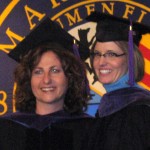 To no one’s surprise, the vast majority of current Wisconsin lawyers received their legal education in the Badger State. According to official figures, 12,357 of 20,841 (59.3%) of the current active members of the Wisconsin State Bar are graduates of the law schools at Marquette and the University of Wisconsin. Slightly more than a third of all lawyers (7249, or 34.8%) attended Wisconsin while just under one quarter (5108, or 24.5%) are graduates of Marquette.
To no one’s surprise, the vast majority of current Wisconsin lawyers received their legal education in the Badger State. According to official figures, 12,357 of 20,841 (59.3%) of the current active members of the Wisconsin State Bar are graduates of the law schools at Marquette and the University of Wisconsin. Slightly more than a third of all lawyers (7249, or 34.8%) attended Wisconsin while just under one quarter (5108, or 24.5%) are graduates of Marquette.
After Wisconsin, the states whose law schools currently contribute the largest number of alumni to the Wisconsin bar are Minnesota and Illinois, whose 1,824 and 1301 graduates account for 8.8% and 6.2% of the lawyers in the state, respectively.
Other than Wisconsin, the top 10 states supplying lawyers to Wisconsin are:
Minnesota 1824
Illinois 1301
Michigan 518
Iowa 442
Indiana 411
Massachusetts 332
California 299
New York 240
Dist. Columbia 237
Ohio 214
The only other states with at least 100 alumni currently practicing law in Wisconsin are Nebraska (142) and Virginia (121), although Florida just misses at 99. The dominance of Midwestern states on the list is not surprising, as the national pattern is that most lawyers go to law school in the region in which they eventually practice. (Note that in spite of the recent influx of Yale Law School graduates on to the Marquette Law School faculty, Connecticut does not make the list.)
If we focus on individual law schools instead of states, the Top 10 contributors to the Wisconsin bar, after Wisconsin and Marquette are listed below. Minnesota schools dominate the top of the list:
Hamline 655
Wm Mitchell 638
U. Minnesota 506
John Marshall 294
U Iowa 235
U Michigan 235
Drake 207
Harvard 200
DePaul 197
Cooley 180
The next ten are:
Chicago-Kent 176
Valparaiso 174
Northwestern 159
Illinois 123
Georgetown 114
Notre Dame 113
Loyola-Chi 112
No. Illinois 101
Creighton 101
U Chicago 97
Again, the Midwestern dominance is apparent. Counting the Wisconsin schools, 20 of the 22 “feeder” schools are from the Midwest, with Harvard and Georgetown the only exceptions. The afore-mentioned Yale clocks in at 26th overall, tied with St. Louis University with 58 graduates practicing in the state.


